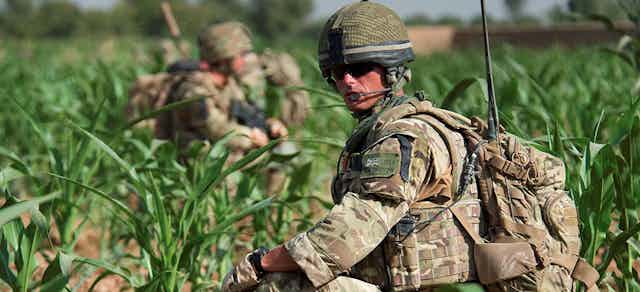What sort of military does the UK need to deal with a rapidly changing set of potential threats? Conventional military thinking still holds that the UK needs to retain what the Americans would describe as “full-spectrum capability” – that the country must retain a heavy armour and artillery option.
But as Western countries increasingly move away from the conventional foe – one that is easily identified, armed in a similar way and which, most critically, thinks in a similar way, and therefore in a conventional and predictable manner – it’s time to reappraise the sort of armed forces required for the future.
In other words, Britain needs to heed Voltaire’s advice when he said: “God is not on the side of the big battalions, but on the side of those who shoot best.”
“Futurology” is an enjoyable pastime, but it’s a risky one, too. Can the UK afford to gamble on national security with only predictions as a guide? To a degree, there will always have to be an element of risk when choosing the shape of armed forces, given the lead-in time for military procurement programmes and the increasingly long and complex training burden. But, equally, a bold analysis of present and likely future threats would suggest that Britain needs more specialised forces.
The most obvious of these would be special forces themselves: highly trained infantry and marines capable of undertaking covert, deep-penetration, long-endurance missions against an ill-defined opponent who blends into the background. This is increasingly the character of conflicts bedevilling much of the Middle East, the Sahel and sub-Saharan Africa – and they demand precisely this sort of forensic, close-to-the-ground response. While it would be foolish to predict that this is the only form that conflict will take in the future, it’s the one class of conflict that is growing – and it seems unlikely to go into decline any time soon.
Asymmetric in form – with opponents who live within their own communities – organisations such as Islamic State (IS) are difficult to defeat with solely conventional means. But carefully targeted raids led by intelligence have a greater chance of success than full-scale armoured attacks. IS for instance, often relies on kidnapping, targeted propaganda and high-profile surprise attacks designed to attract as much attention as possible. These call for surgical and targeted responses, exactly the type of mission that fits neatly into the special forces genre.
By analysing the tactics of these quasi-military, quasi-terrorist cells, it is possible to identify tactics and therefore the sort of troops best suited for countering them. The careful attack that removes the head of the snake is probably the most productive.

The effectiveness of special forces can be illustrated by the successful rescue of five members of the Royal Irish Regiment who had been held by a militia group known as the “West Side Boys” in Sierra Leone. Operation Barras, took place on September 19, 2000, in a dawn assault on the West Side Boys’ base.
The direct assault was conducted by the British Special Air Service, with elements of the Parachute Regiment (also, to be noted, specialist troops if not technically Special Forces) launching a diversionary assault. All five soldiers as well as 21 Sierra Leone civilians who had been held prisoner were freed unharmed. At least 25 West Side Boys were killed in the assault and 18 captured, including the gang’s leader. One British soldier was killed.
Changing focus
An increasing concentration on special forces-type troops requires a wider realignment of our military. Such troops need to be selected from a base of potential candidates most likely found in the UK in the light infantry and specialised units such as the Parachute Regiment and Royal Marines. In turn, this suggests both an expansion of such forces and a greater allocation of resources. Logistics, communication and especially transport (any bids for buying the Osprey anyone?) would also require examination.
But it is with intelligence that the second focus would be required. Intelligence remains the key to success with such small-scale operations, especially in firepower. Intelligence-gathering is becoming increasingly sophisticated, technical and therefore both specialised and expensive.
Technical data-gathering has become ever easier and more pervasive, especially with the development of both satellites and unmanned air vehicles (or drones). But the ability to sweep up vast quantities of information means little without the capacity to analyse it – and herein lies the third area that would require significant investment if we were to adopt a more specialised approach to warfare.

And the world of drones, already with their ability to loiter for prolonged periods at low cost, all but zero risk to the attacker and increasing ubiquity, has ushered in a form of war fighting that would have seemed extraordinary only a generation ago. Drones can, of course, also be used as attack platforms, and the coming together of precision weapons, long-endurance platforms and low-risk operations dovetail neatly within this broader form of special, and specialised, operations.
In many ways, Voltaire was right: it is no longer the size of your arsenal of firepower but how well it is employed that matters. Organisations such as Islamic State understand that well: their actions are carefully targeted to achieve maximum effect with limited resources. With technology on the Western side, the best counter to this present – and likely future – threat, will be to adopt in turn Voltaire’s maxim and concentrate increasingly on special, and specialised, forces.

